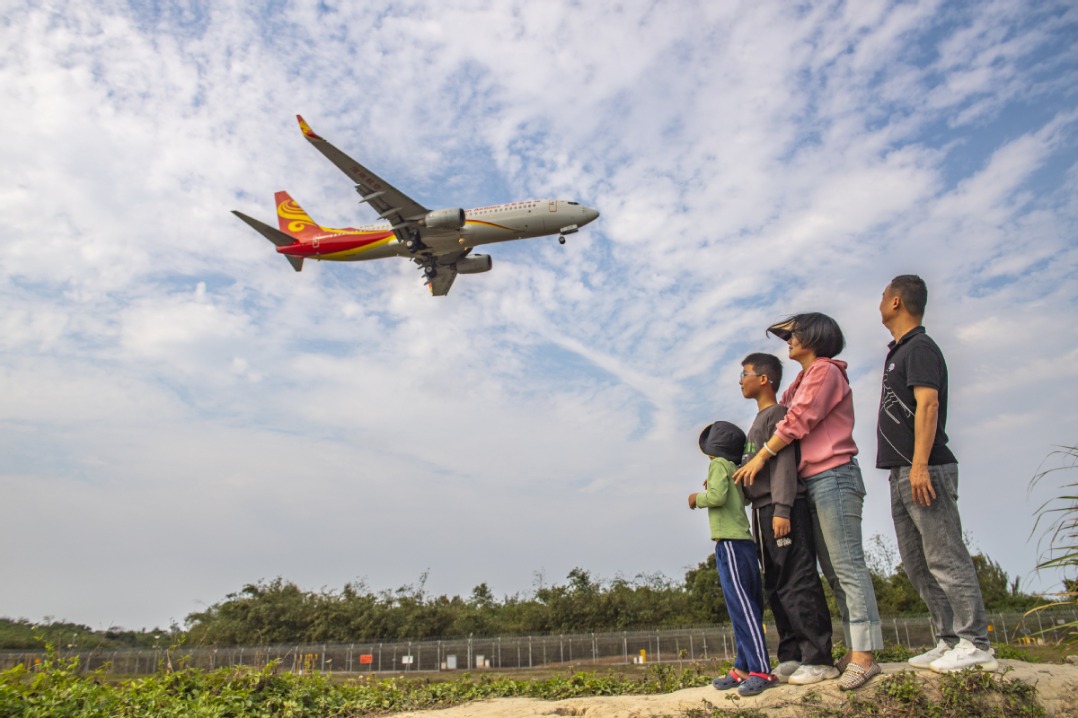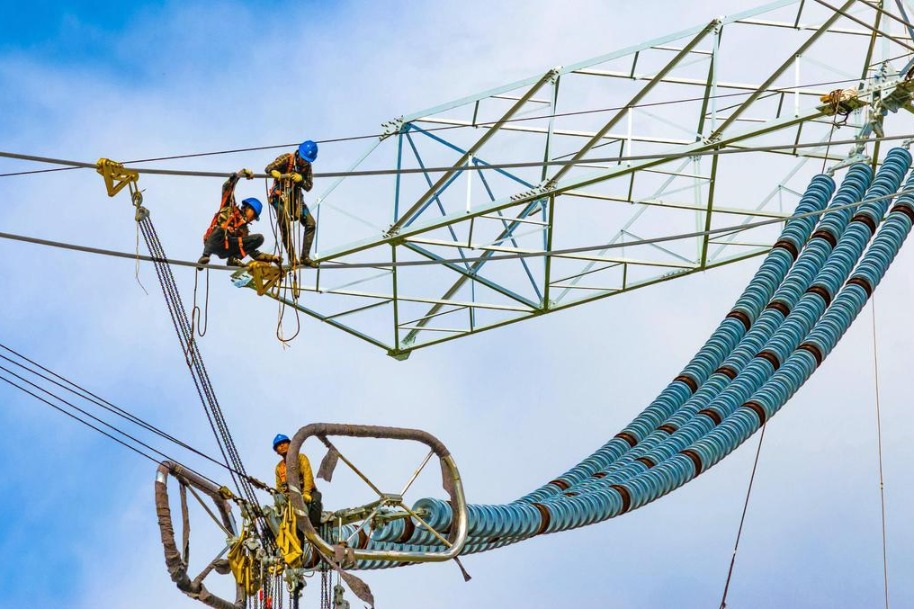Mongolia ties example of win-win cooperation


This year marks the 75th anniversary of the establishment of China-Mongolia diplomatic relations, the 30th anniversary of the signing of the Treaty on Friendly and Cooperative Relations between China and Mongolia, and the 10th anniversary of the top Chinese leader's visit to Mongolia and the establishment of the comprehensive strategic partnership between the two countries.
Over the past 10 years, China and Mongolia have strengthened political mutual trust, increased economic and trade exchanges, deepened practical cooperation, and taken joint measures to control desertification.
Mongolia was one of the first countries to establish diplomatic relations with China, and in the 75 years since, Mongolia has been elevated from a "good neighbor, good partner and good friend" to a "model of state-to-state relations" in the new era. On its part, Mongolia has upgraded China's position from an "eternal neighbor" to a "close neighbor, close friend and close partner". These changes in terms reflect the strengthening of political mutual trust between the two countries.
According to the Mongolian government website on July 17, Luvsannamsrai Oyun-Erdene, who was recently re-elected as prime minister of the new Mongolian government, met with Shen Minjuan, Chinese ambassador to Mongolia. At the meeting, Oyun-Erdene said now that the first 126-seat State Great Khural (parliament) election in Mongolia and formation of a new government have been completed, he hoped the two sides will deepen cooperation and implement bilateral programs in fields such as the economy, trade, land port, environmental protection, and energy projects to push bilateral relations and cooperation to a new level.
That Mongolia attaches special importance to its ties with China, the Third Belt and Road Forum for International Cooperation in particular, was evident in the Mongolian delegation being headed by President Ukhnaagiin Khurelsukh to the forum in October 2023.
On Oct 16, 2023, China Daily published an exclusive signed article by President Khurelsukh, in which he said Mongolia is pleased that over the past decade the Belt and Road Initiative has turned into an important regional platform for development, demonstrating the fundamental principles of extensive consultation, joint contribution and shared benefits based on the concept of mutual learning and equitable cooperation.
In the 11 years since the Belt and Road Initiative was proposed, mutually beneficial cooperation between the two countries has expanded, with China being Mongolia's largest trading partner and investor for many years. Last year, the bilateral trade volume reached $16.59 billion, up 36.1 percent year-on-year.
Recently, China and Mongolia have deepened cooperation in environmental protection, and desertification prevention and control. Last year, the two sides signed a framework agreement on supporting Mongolia's "One Billion Trees" campaign and strengthening Sino-Mongolian cooperation on desertification prevention and control, while establishing the China-Mongolia Cooperation Center on Desertification Prevention and Control.
On Sept 7, 2023, the Chinese government organized the opening ceremony of the 2023 Training Course on Desertification Control in Mongolia at the Gansu Institute of Desertification Control. Thirty officials and technicians from Mongolia participated in the 21-day training program and learned about China's experiences in desertification control, environmental protection and ecological preservation.
And on March 27 this year, Shen Minjuan and the Mongolian finance minister signed a document on the feasibility study for a "China-Mongolia Desertification Prevention and Control Cooperation Center and Demonstration Base" project.
Also, cultural, educational and professional exchanges between the two sides have intensified in recent years. Mongolia's Ikon News, citing data from the Mongolian National Bureau of Statistics, said Chinese tourists comprised the largest group of foreign visitors to Mongolia in the first half of this year. On the other hand, the number of Mongolian students studying in China exceeded 6,600, and more than 3,000 Chinese students were studying in Mongolia in the first half of this year.
In the field of education, direct cooperation between institutions of higher learning has been strengthened, with many Chinese students earning their MA and PhD degrees from Mongolian universities. In fact, Chinese students have been doing research in not only humanities but also science and technology in Mongolia.
On July 24, Mongolian Education Minister P. Naranbayar met with the Chinese ambassador to Mongolia. The two sides decided to jointly establish a demonstration international engineering college that will contribute to the development of Northeast Asia, take Sino-Mongolian cooperation in education to a new level, and decided that the Mongolia University of Science and Technology and Inner Mongolia University of Technology would launch the project.
All this shows Sino-Mongolian cooperation has been strengthening on multiple fronts for the benefit of both sides.
Meng Gencang is a professor at the China Research Center for Northeast Asian Languages, Dalian University of Foreign Languages; and Bayasakh Jamsarn is a state merit professor at, and former director of, the Institute of International Affairs, Mongolian Academy of Sciences. The views don't necessarily reflect those of China Daily.
If you have a specific expertise, or would like to share your thought about our stories, then send us your writings at opinion@chinadaily.com.cn, and comment@chinadaily.com.cn.


































